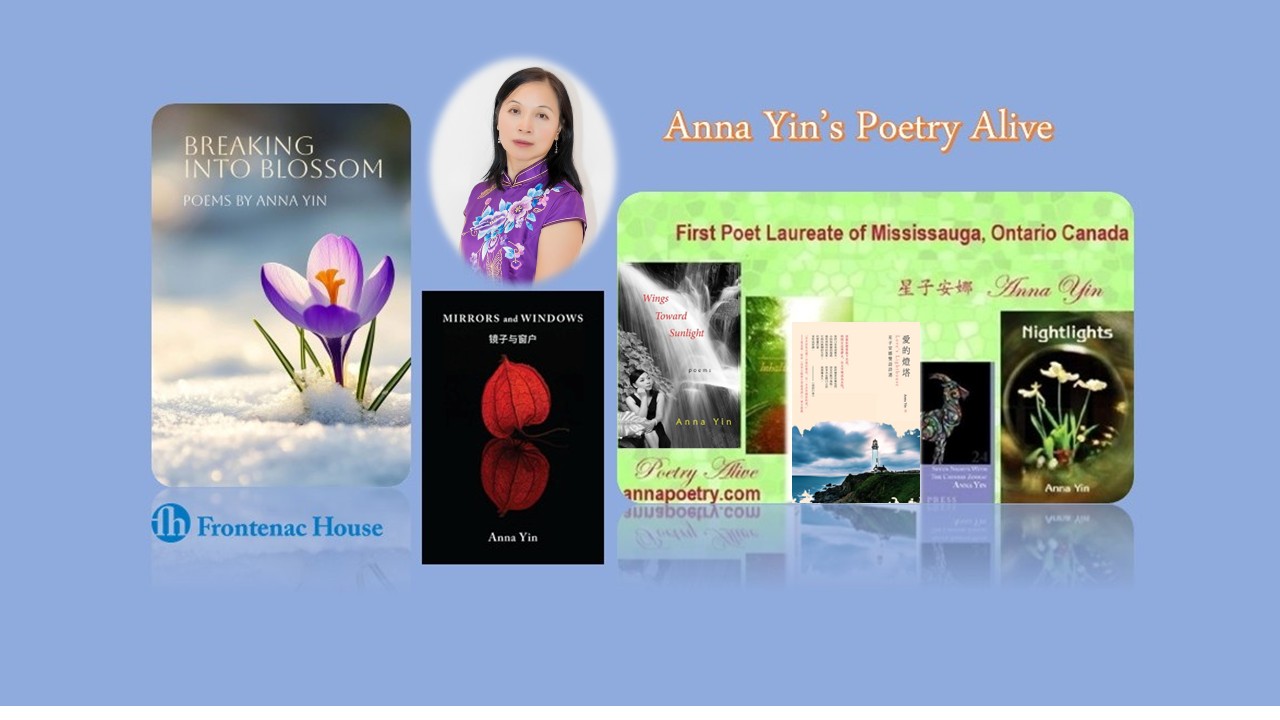- Well, fish is so dear to you! But in your second collection it has drowned or it is exhausted?
Interestingly other readers also have observed my Fish and asked the same question. Indeed, “fish” is very dear to me. In my first collection, the fish image recurs in several poems and has a major role, although each time with different characteristic. You can view “fish” as my self image, with a soft voice to express the feeling of sympathy, that longing for adventures and wish for a soul mate. In my second collection fish appear several times, but only in a supportive role. The “Moon” takes a major role and presents many faces. Why? Personally I don’t think the “fish” is exhausted or drowned, it just needs a break, and for that my view shifts to the wider sky…As with the moon, a cosmos is there to communicate.
- Bodhi Tree! Do you mean a religion image by this? Is religion still relevant today?
I am open to all religions. I find that all are interesting and fascinating; however I think Poetry is my religion. When I write poems, I use my own poetic license to mix religious cultures. I wrote the poem Bodhi Tree because I like the idea in Buddha’s philosophy of letting go and freeing oneself, but you also can see there is a transforming of feeling and ideas there. I think religion is still relevant today and everyone needs to believe something to have hope.
- Do you think poetry have a land? Or universal? (e.g. China, India, Canada etc.)
I think you can say poetry has its own land depending on its voice. But some poetry has a voice that is universal and beyond time. Some critics think my voice is international because I bridge eastern and western cultures, blending them through my own voice.
- How Modern poetry differs from earlier one in your experience?
I started writing poetry with little knowledge about western poetry, especially modern western poetry. Words and images came to me and I simply trusted my intuition and wrote them down in English. Later on, I took six courses in creative writing at University of Toronto. It helped to broaden my view and break through my limitations. I think Modern poetry differs from earlier poetry in many ways, not just style and syntax. Poets nowadays seem more detached themselves from what they write. The way I write is different from them. But surely you can find many kinds of poem in modern poetry.
- Is future of poetry bright? (i.e. read by more people, more books of poetry will be sold, more discussion about poetry and more variation in poetic form)
From what I have experienced, there are more poetry events and more people read poetry in Toronto and other cities in Canada nowadays. There is also more variation in poetic forms, including collaboration with painting, photograph, music and dance performance.
I believe there is always a future for poetry, bright or not, we will see. No matter what happens, since poetry has become a very important part of my life, I will continue working on Poetry Alive education programs to promote poetry to the general public and encourage the multicultural dimensions of poetry in book form, multi-media form and other new form as well.
- A few words about yourself as appreciated in today’s world of poetry.
I am grateful that my poetry not only opened a door for myself, it also saved a lady’s life. I know every poet wants to be appreciated for his/her poetry. I am glad that my poetry has been recognized and has won awards. My voice gets stronger and more mature; it has been well received in today’s poetry circles. As Richard Greene wrote in his introduction to my second collection: “I am very hopeful of what the future holds for her”. I too want to explore what the future holds for me.
